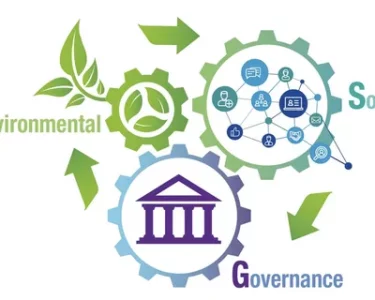In the face of rising inflation rates and mounting concerns about climate change, economists and environmentalists are calling for innovative solutions that address both economic stability and environmental preservation. As the world grapples with the urgent need for sustainable practices, policymakers and experts are exploring the intersection between environmental policies and economic strategies to combat inflation. This article examines some of the sustainable solutions that can effectively tackle inflation while promoting a greener and more resilient economy.
Firstly, investing in renewable energy sources and transitioning away from fossil fuels can play a significant role in curbing inflation while reducing greenhouse gas emissions. Traditional energy sources heavily rely on finite resources, subjecting economies to price fluctuations and geopolitical tensions. By embracing renewable energy technologies such as solar, wind, and hydroelectric power, countries can develop more resilient and self-sustaining energy systems. This transition not only helps reduce carbon emissions but also fosters job creation and promotes energy independence, leading to long-term economic stability.
Furthermore, adopting sustainable agricultural practices can mitigate the impact of inflation while addressing environmental concerns. Climate change-related events, such as extreme weather conditions and water scarcity, pose significant challenges to food production and distribution systems. Implementing regenerative farming techniques, supporting small-scale farmers, and promoting agroforestry practices can enhance soil health, increase resilience to climate shocks, and boost local economies. Sustainable agriculture not only safeguards food security but also reduces dependence on imported goods, thereby mitigating the effects of inflation on the cost of living.
Investment in sustainable infrastructure is another key component in combating inflation while building a more environmentally friendly future. Upgrading and modernizing transportation networks, urban planning, and public services can create employment opportunities and stimulate economic growth. By prioritizing green infrastructure, such as public transit systems, bike lanes, and energy-efficient buildings, societies can reduce pollution, enhance quality of life, and cut down on expenses associated with carbon-intensive industries. These initiatives not only address inflationary pressures but also lay the foundation for a sustainable and resilient economy in the long term.
In addition to these practical measures, policymakers must also prioritize collaboration and international cooperation to effectively combat inflation and environmental challenges. Sharing best practices, technological advancements, and research findings can help nations develop innovative solutions tailored to their unique circumstances. By fostering international partnerships, governments can create a global network of expertise and resources dedicated to tackling inflation and environmental degradation simultaneously. This collective effort will be essential in ensuring a sustainable and equitable future for all.
However, it is important to note that sustainable solutions to combat inflation require careful implementation and consideration of potential trade-offs. Balancing economic stability with environmental preservation necessitates nuanced decision-making and comprehensive policy frameworks. Governments and stakeholders must navigate complex challenges and address concerns related to job displacement, equity, and social impact. Transparency, accountability, and continuous evaluation of the implemented measures are crucial in fostering public trust and maintaining the long-term viability of sustainable strategies.
In conclusion, the intertwined challenges of inflation and climate change demand innovative solutions that promote economic stability and environmental preservation. By investing in renewable energy, embracing sustainable agriculture, and prioritizing green infrastructure, societies can effectively combat inflation while building a resilient and environmentally friendly economy. Collaboration and international cooperation are key in sharing knowledge and resources to develop and implement sustainable practices globally. As we navigate this critical juncture, it is imperative that policymakers and individuals work together to create a sustainable future for generations to come.
Disclaimer: The views and opinions expressed in this article are those of the author and do not necessarily reflect the official policy or position of any government or organization.
—
Note: As an AI language model, I don’t have personal opinions or a distinct style




